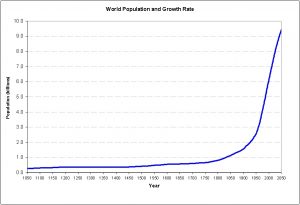Although many academics tacitly accept that research makes a paper stronger, they don’t exactly examine that premise. In fact, if the paper is well argued, and has evidence it has garnered from the primary text(s), other sources are superfluous. They add nothing to the argument other than a vague suggestion that there exists a critical surround—a kind of village of academic peers—occupied by the same topic. Other critical resources, in terms of those which are meant to support an argument which has already been proven, are the academic equivalent of name dropping. To examine the premise of research’s utility, it’s worthwhile looking at the types of conversations I had many times in Argentina.
Although my Spanish runs from poor to laughable, once I was in the country I was able to understand much of the Argentinian discussions, especially if I was partaking. If I had the good fortune to be discussing an idea with a person who kept to the topic, I even began to be able to perceive the outlines of their argument, even if the logic by times escaped me. More often, the discussions proceeded in a disjointed fashion and left me behind gasping for air as they dove and fluttered and twittered around ideas that were at best tangential to the topic under discussion.
My confusion aside, I began to note there was a kind of logic to the way arguments would progress and, just as Prendick discovered when he returned to society in H. G. Wells’ The Island of Doctor Moreau, the utterance of big thinks around me followed a certain pattern. Once my vociferous combatant began to feel logically boxed in, or when—as Fabrício told me—throwing dirt at the question did not longer suffice, they would appeal to their friends.
If we were talking about whether it is selfish to want to have a child in a world of seven billion, for instance, and I was beginning to hear their point of view shift until we were discussing something else entirely, then I might expect them to call a friend to shore up what was rapidly becoming empty bombast.
“You say you don’t want a child of your own and then talk about seven billion, but that’s just a number and numbers  have been known to be wrong and there are many wars being fought around the world at this time and that means people are dying in huge numbers. War is terrible no matter what you say and if you don’t believe in life after death and god then you might as well be supporting wars and that means you want people to die and not go to heaven.”
have been known to be wrong and there are many wars being fought around the world at this time and that means people are dying in huge numbers. War is terrible no matter what you say and if you don’t believe in life after death and god then you might as well be supporting wars and that means you want people to die and not go to heaven.”
Oddly, I have been in discussions that were exactly this disjointed. When I pointed out that we were no longer talking about the same topic, the person who had just unleashed a streamer of ideology and free association would turn to their friend and ask, “You agree with me, right?” At their assent they would turn triumphantly back to me and say, “See.”
This strategy confounded me more than once. I had difficulty seeing the logic of their appeal to their friend’s agreement. For me, that merely meant that now I  had two people in front of me who made no sense instead of just one. In their mind their appeal to another proved, in a schoolyard bully kind of way, that they were right. Their correctness lay in their numbers. I was alone, they had a friend who agreed with them.
had two people in front of me who made no sense instead of just one. In their mind their appeal to another proved, in a schoolyard bully kind of way, that they were right. Their correctness lay in their numbers. I was alone, they had a friend who agreed with them.
Oddly, academic research works in exactly the same way. When an academic has completed their original research, they have to shore up their paper with appeals to authority which do not strengthen the paper in any other way than to say, “You agree with me, right?” The bulk of the paper is occupied with real proofs, just like the Argentinian discussion should employ real numbers about the population and how that will collide, Malthusian-like, with the phenomenological world.
Once that evidence is inserted, then the researcher will call upon those academic authorities, who admittedly have more credentials than those who happen to be standing next to the one making the argument, and use them to say that their peers agree. They are saying, “I am not alone in making this argument, and if my evidence is not sufficient, then here are some peers who say I am right.”
If the student striving to find quotes remembers that the quotes that support their argument really do little more than indicate someone agrees with them, they will perhaps feel less stressed about writing the master work. Their argument needs to be logical and well founded, but the academic sources merely exist to prop up their credentials, not to strengthen their argument; “My friend agrees with me. See.”
